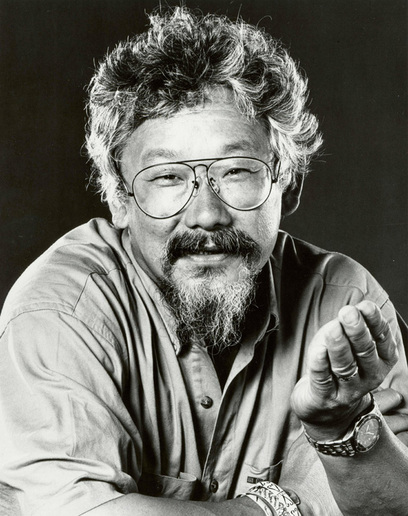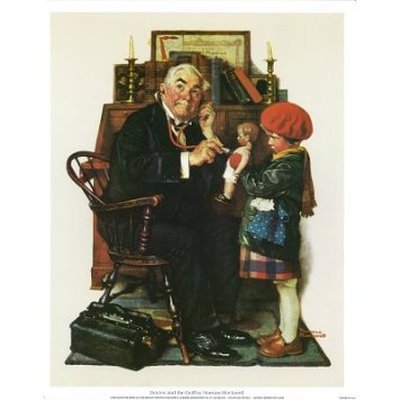 ACLS can be challenging. The acronym means Advanced Cardiac Life Support. It is about reviving the dead. Hearts stop and can sometimes be restarted, saving a life. ACLS is a certification which is required of all medical providers that are involved in critical care. I recertified this past weekend with a collection of EMT’s, respiratory therapists, physicians, and nurses. It is a lot of information and we are rigorously tested. Why doesn’t everyone get this certification? It requires skills that not everyone has. Airway skills (intubation), IV skills, pharmacology (understanding of drugs and how to give them), proficient CPR skills, EKG skills (read and interpret a heart monitor), knowledge of physiology and anatomy, and leadership are all needed. I recertify regularly. This time, the instructors were all “Life Flight” personnel (they are really good). The American Heart Association keeps improving the techniques and procedures (which is a little frustrating because it is necessary to dump the old and substitute with the new but that is the nature of high quality medical care). It is necessary to study, learn, and refresh to be most effective. I used ACLS protocols once in a dental office when a man walked in off the street. He wasn’t even a patient. Fortunately, he did fine. Skill and understanding is important because people that would otherwise die, live. Dave
1 Comment
 "If we keep asking the wrong questions, the answers don't matter." --Dr. David Suzuki, May 2013 A slight rewrite on Thomas Pynchon from Gravity's Rainbow “If they can get you asking the wrong questions, they don't have to worry about answers.” The original is a little more sinister, suggesting manipulation and conspiracy. Dr. Suzuki made this statement while on stage with the Dalai Lama, addressing issues of the environment, technology, and science. It struck me as one of those succinct truths, very applicable to so many issues in medicine, dentistry, diet, and health. --Dave  It is based on three elements: 1.Everyone wants listening and understanding. That means that the listener must have listening skills and empathy. That also means that understanding is required and that agreement is irrelevant. The mental approach is called ‘unconditional positive regard’. This means the suspension of judgement and ego is needed in order to pay full attention to the other person. Let them tell their story without interrupting or being defensive. As they talk, you need to communicate your understanding. Genuine responses that keep them talking. 2. Everyone wants to be valued and included. Start with the intention that the patient has something to offer. They have values, wants, and concerns that are valid to them. They are an expert on their own body and careful listening will reveal valuable diagnostic information and their outcome. It is incumbent on the interviewer to ask good questions, be curious, and follow up appropriately. The patients desired outcome is an essential determination. 3. Everyone wants to be engaging in something worthwhile and meaningful. Once a patient knows that they are understood, that the outcome they desire is the goal of treatment, and that they will be supported in the effort, they follow through. The remaining barriers are money, time, inconvenience, and fear. If they truly believe they are getting what they want, the first three mean much less. Fear Fear is a separate issue to be dealt with. If trust has been built, it will lessen. Empathy and compassion help sort out a means of dealing with fear. All fear must be validated. The fear is real even if the reason for the fear is obscure. The reason is not relevant. Fear can be very deep seated and may be from a psychological trauma that has been suppressed. If possible, identify the fear or anxiety producing behaviors or objects. If they cannot be eliminated then sedation or anesthesia may be the answer. --Dave Photo by Dave Hutt, www.dmddigitalphoto.com  Mirror neuron cells allow us to connect with one another. We can work together, learn together, and reap benefits together from cooperation. A question arises...why do we tear up when someone is kind to us? Why the glow when we feel understood? Emotional Deprivation “People don’t care how much you know, until they know how much you care.” is a phrase that we throw around. Mark Goulston,MD has a hypothesis that seems to work. He would go farther, “Sometimes people aren’t able to care about what you want them to do, until they feel cared about by you.” The reason for that is that when people feel un-mirrored and uncared for, they are experiencing a MNRD (mirror neuron receptor deficit), they are in a state of emotional deprivation. Because of that, their focus is often distracted by trying to correct that deprivation rather than focusing on what they need to get done. When accurately mirrored, they feel temporarily complete. That usually crosses over into feeling grateful and often the desire to follow through and take steps towards getting well. Chronic Fear I see this with chronically fearful patients. They have fears that they have difficulty controlling. They are embarrassed, feel stupid, unworthy, and broken. Those feelings are often reinforced by health care providers that communicate that those very real fears are stupid and getting in the way. In my experience and in my investigations, many have been victims of child abuse or sexual abuse. They have had some trauma that has caused a version of post traumatic stress disorder (PTSD). They may not even connect prior abuse to their fears. Something bad happened to them and the emotions are deep seated. They deserve understanding and compassion. When the fear is acknowledged, they feel believed and empathized, they respond. They feel emotionally touched, disarmed and even overwhelmed when someone acknowledges their pain. Tears and gratitude are common. They do often follow through. --Dave photo by Dave Hutt, www.dmddigitalphoto.com  “Are you using the Michael Jackson drug, doctor?” Michael Jackson passed away nearly 4 years ago but I still get that question. Propofol is that drug. Nearly all anesthesiologists use it when giving anesthesia. Why? Because it is a fast acting drug with very few side effects. It tends to make people feel good after the anesthesia is done. Besides wearing off quickly, it also prevents stomach upset. Drugs used improperly are dangerous Aspirin, Tylenol, valium, and many other drugs, when used improperly, can be lethal. They can also provide relief from pain and suffering. They need to be used correctly by a responsible person that is competent. Aspirin, for example, is easy enough to use that an adult can read the instructions and safely use or administer it. Propofol is more complicated and needs to be administered by a trained person. Propofol should be given by anesthesiologists In a dental office, propofol can work wonderfully well, providing very comfortable anesthesia. It is a drug that works very predictably in the hands of a trained anesthesiologist. In the hands of an untrained person, who is treating someone that is already taking many other sedatives and pain killers, anesthetic drugs can lead to tragic consequences. That is what happened to Michael Jackson. Well done anesthesia is an act of compassion The answer to the question is that I often use propofol. It will help me provide quick, comfortable, safe anesthesia. People leave soon after the procedure is done, feeling good. Relief of suffering, fear, and pain of others makes providing anesthesia an act of compassion that is very immediate, allowing important work to be done for people that couldn’t otherwise do it. That is why I do it. --Dave Photo "Poppies" by Dave Hutt, www.dmddigitalphoto.com  There are many ways I can deliver anesthesia to patients. Each has its advantages. In a dental office, comfort, safety, and convenience are the key. Sedative For the patient, going to sleep comfortably is the first priority. A preoperative sedative can make this pleasant and unmemorable. Safety During the procedure, protecting a sleeping patient is my singular responsibility. With body padding, eye protection, watchful observation, and a full range of high tech monitors, comfort and safety is preserved. In addition, if antibiotics are required to protect against infection, they are provided through the IV. Comfort Toward the end of the procedure drugs for post operative comfort can be given. Prevention of pain, nausea, and inflammation are very important. Convenience Patients almost always wake up quickly. I expect people to feel a little tired but otherwise fine. Since the dental work has been completed, as though by magic, that is even better. --Dr. Dave  Anesthesiologists must develop a thorough history for every patient that is to have anesthesia. I do one for each patient I see. I talk to patients and listen. I hear about fears, surgeries, allergies, medications, diagnoses, treatments, and symptoms. They usually have had appropriate treatment. Sometimes patients have conditions that are treatable but have not been treated. Sometimes they are treated too much or in conflicting ways. Sometimes there is a lack of coordination between healthcare providers. Sometimes the patient has a condition and they choose not to treat. If it does not interfere with treatment that I provide, it isn’t relevant. It does make me curious. Why did they make that choice? They may have made a well reasoned decision. Could it be fear, poor communication, or a misunderstanding? Perhaps. Listen Carefully and Be Curious Almost exactly a year ago, a friend died due to lack of communication between his doctors over a period of years. Reviewing all the medical records, I can understand what happened. It seemed that his complaints were not taken seriously. They didn’t make the diagnosis in spite of symptoms. He, unfortunately, was not given a choice. Proactive Patient I would recommend to anyone, if your medical problems are not resolving as expected, be proactive. If you are unhappy with your treatment, do something about it. I would recommend to any healthcare provider to be curious, ask questions, and listen carefully. --Dave |
Dr. Dave
Dentist Anesthesiologist Archives
June 2013
Categories
All
|
 RSS Feed
RSS Feed